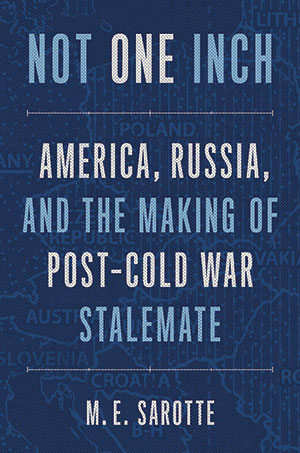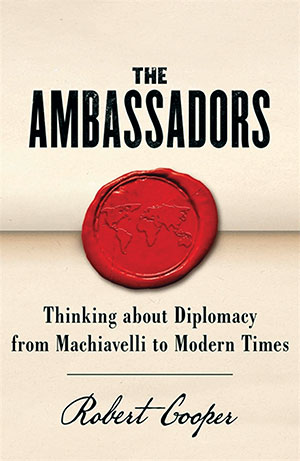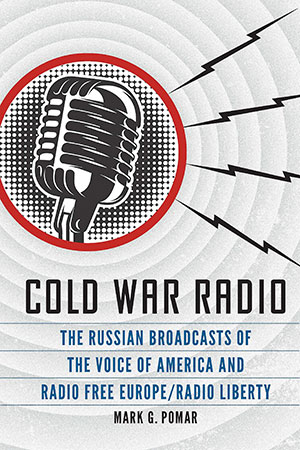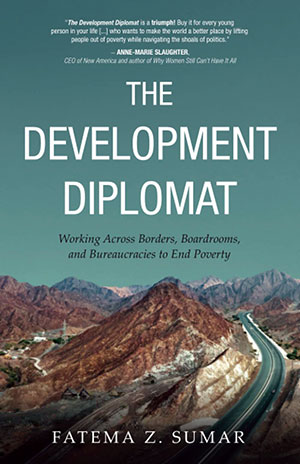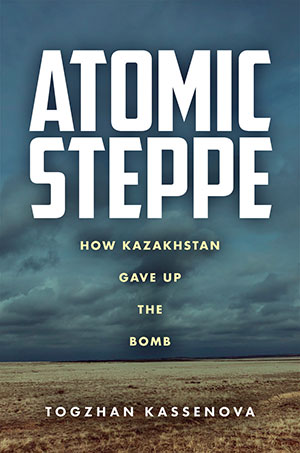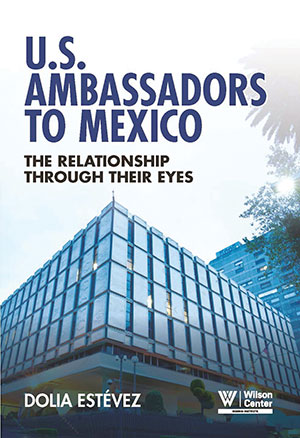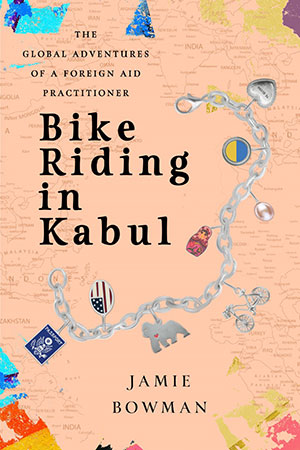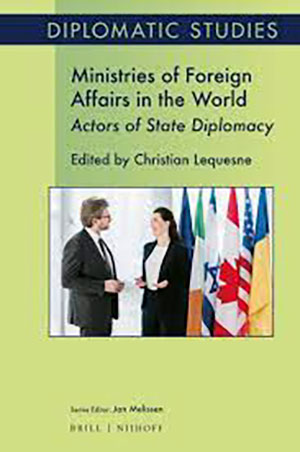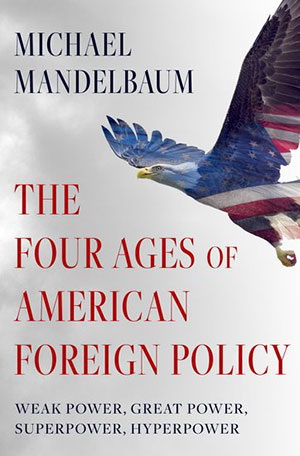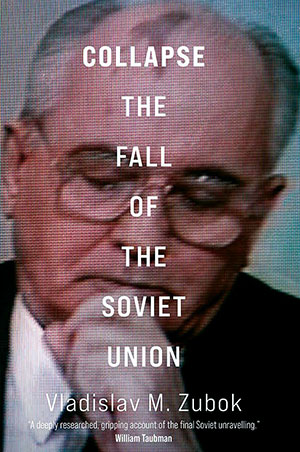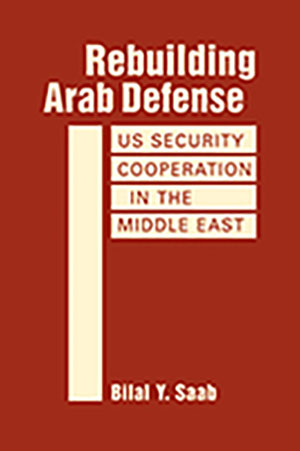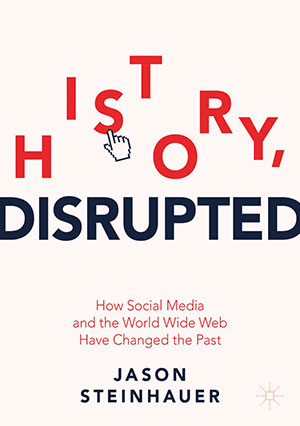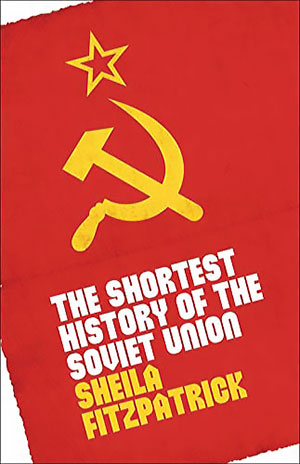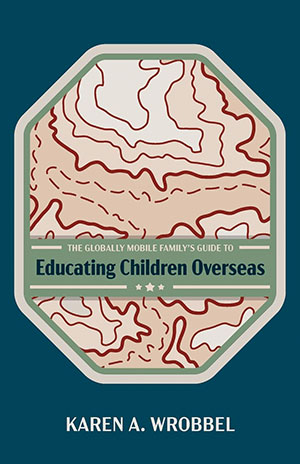Of Related Interest
Recent books of interest to the foreign affairs community.
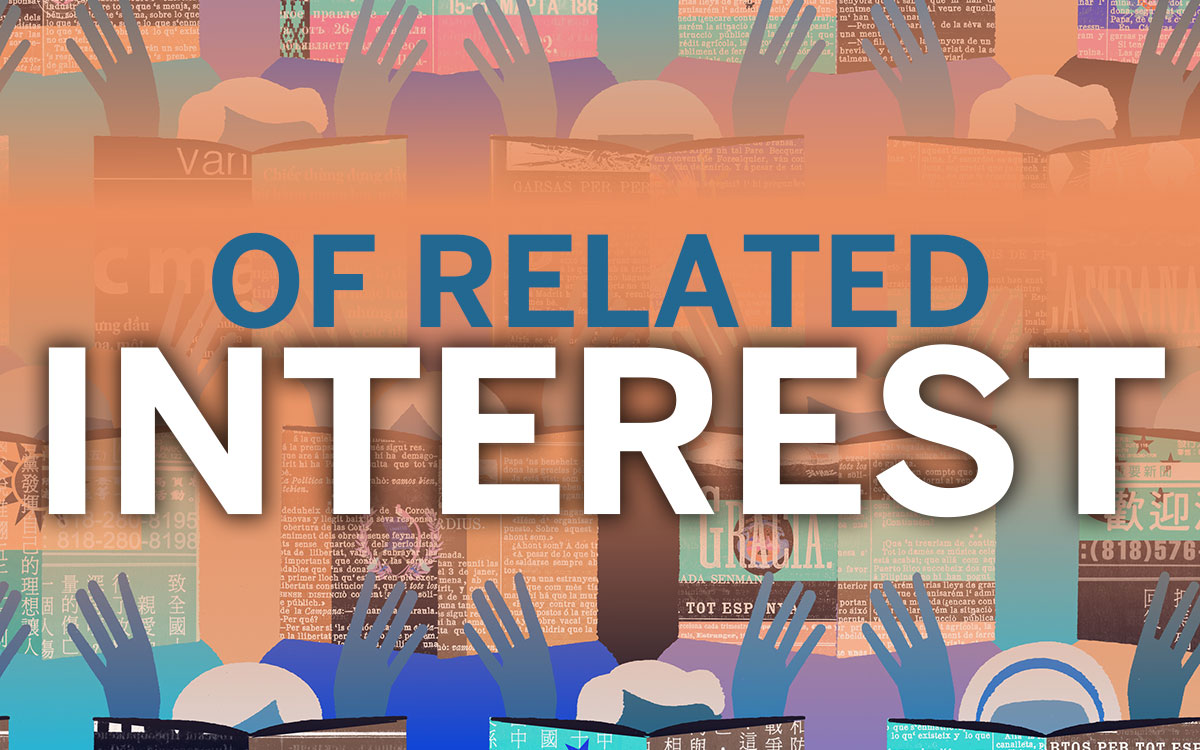
Illustration by Keith Negley / theispot
Not One Inch: America, Russia, and the Making of a Post-Cold War Stalemate
M.E. Sarotte, Yale University Press, $25/paperback, e-book available, 568 pages.
The period immediately following the end of the Cold War and preceding the presidency of Vladimir Putin was critical for NATO-Russia relations. Drawing on numerous memos, letters, briefs, and once-secret documents, Mary Elise Sarotte examines the behind-the-scenes diplomacy of 1990s-era NATO expansion. She carefully documents the decision-making and rationales that drove this sensitive and controversial policy. As war currently rages between Russia and Ukraine, Not One Inch provides critical context in understanding the modern origins of Russian insecurity and its wary perceptions of a growing NATO alliance.
Mary Elise Sarotte is the inaugural holder of the Marie-Josée and Henry R. Kravis Distinguished Professorship of Historical Studies at Johns Hopkins University. She is the author or editor of six books, including 1989: The Struggle to Create Post–Cold War Europe (2014) and The Collapse: The Accidental Opening of the Berlin Wall (2014), both of which were selected as Books of the Year by The Financial Times.
The Ambassadors: Thinking about Diplomacy from Machiavelli to Modern Times
Robert Cooper, Weidenfeld & Nicolson, 2021, $22.99/paperback, e-book available, 576 pages.
In The Ambassadors, Robert Cooper ambitiously traces more than 500 years of diplomacy through the lens of its most famous (or infamous) practitioners, including Niccolò Machiavelli, Charles Maurice de Talleyrand, Konrad Adenauer, Jean Monnet, Dean Acheson, George Kennan, and Henry Kissinger. Using a present-tense narrative style, Cooper vividly recounts the actions of these leaders, bringing readers into the past.
Given the professional diplomat’s penchant for declining to trumpet accomplishments, many fall through the cracks of history only to be remembered as faint background actors. In this book lesser-known names become decisive figures as Cooper illuminates their consequential roles. While examining the diplomacy and leaders of various eras, he also weaves in valuable lessons on diplomatic tradecraft and statesmanship that have proven timeless.
Sir Robert Francis Cooper served in the British diplomatic service for more than 30 years and in the European Union. He is a member of the European Council on Foreign Relations.
Cold War Radio: The Russian Broadcasts of the Voice of America and Radio Free Europe/Radio Liberty
Mark G. Pomar, Potomac Books, 2022, $34.95/hardcover, e-book available, 344 pages.
The Voice of America (VOA) and Radio Free Europe/Radio Liberty (RFE/RL) were an integral part of U.S. strategy for competing in the Cold War. Mark Pomar incisively examines these institutions and their Russian broadcasting to assess their impact on East-West relations, from NATO– Warsaw Pact competition to the dissolution of the Soviet Union.
Ambassador Eric Rubin writes in his September 2022 FSJ review that the author’s “stellar career in the Soviet and post-Soviet world makes him an ideal teller of this compelling story.” Pomar moves beyond this role, however, and also offers lessons for managing the informational dimensions of competition that have only grown in importance since the Cold War.
Mark G. Pomar is a former assistant director of the Russian Service at RFE/RL, director of the USSR division at VOA, and executive director of the Board for International Broadcasting. He was the founding CEO and president of the U.S.-Russia Foundation in Moscow.
The Development Diplomat: Working Across Borders, Boardrooms, and Bureaucracies to End Poverty
Fatema Z. Sumar, New Degree Press, 2021, $19.99/paperback, e-book available, 384 pages.
First-generation Muslim American Fatema Z. Sumar has served the U.S. government as a diplomat, political aide, and development expert. In The Development Diplomat, Sumar focuses on her time fighting poverty and promoting economic opportunity in the developing world. She recounts deeply personal stories of coming face-to-face with stark deprivation while emphasizing cross-disciplinary approaches for managing government development efforts. The Development Diplomat offers critical lessons for reforming the challenging and convoluted methods of international development based on her multifaceted experience in the field and in Washington.
Fatema Z. Sumar is the vice president of compact operations at the Millennium Challenge Corporation. She previously served as a deputy assistant secretary of State for South and Central Asia and as a senior professional staff member for the U.S. Senate Foreign Relations Committee. Ms. Sumar sits on advisory boards for Princeton, Cornell, and Indiana universities.
Atomic Steppe: How Kazhakstan Gave Up the Bomb
Togzhan Kassenova, Stanford University Press, 2022, $30/paperback, e-book available, 384 pages
For more than 40 years, the Soviet Union used Kazakhstan for nuclear testing; with the breakup of the USSR in 1991, Kazakhstan became overnight a country with the fourth-largest nuclear arsenal in the world. Author Togzhan Kassenova documents how the country gave up this nuclear inheritance through diplomacy. The author’s “knowledge of the international nuclear world allows her to place this story … within the context of the global nonproliferation regime and the geopolitical pull and tug of the Cold War and its aftermath,” writes Ambassador (ret.) Laura Kennedy in her April 2022 FSJ review of this book.
Dr. Togzhan Kassenova is a Washington, D.C.–based senior fellow with the Project on International Security, Commerce, and Economic Statecraft (PISCES) at the Center for Policy Research, State University of New York at Albany, and a nonresident fellow in the Nuclear Policy Program at the Carnegie Endowment for International Peace. From 2011 to 2015, she served on the U.N. secretary-general’s Advisory Board on Disarmament Matters.
Mexico, A Challenging Assignment: U.S. Ambassadors Share Their Experiences
Dolia Estévez, Woodrow Wilson International Center for Scholars, 2022, available (free) online: www.wilsoncenter.org, 263 pages.
This is a valuable sourcebook on diplomacy and the history of U.S.-Mexico relations. At its core are 12 interviews—one with each of the U.S. ambassadors to Mexico from 1977 to 2021, both career and political, through three Democratic and four Republican administrations. A historical overview of the U.S.-Mexico relationship and contextual details relating to the post-1977 period helpfully frame the interviews. As the author explains in her introduction, the book is neither an assessment of the ambassadors’ performances nor an analysis of U.S. policy toward Mexico: “It is rather an original work of journalism that tells the story of 45 years of U.S.-Mexico relations from the unique perspective of these key actors.” We hear their voices and see Mexico through their eyes.
Dolia Estévez is a senior independent journalist and analyst based in Washington, D.C. She has been reporting on U.S.-Mexico relations since the late 1980s for both Mexican and U.S. print and radio outlets.
See the Desert and Die: A David Markham Mystery
Ann Saxton Reh, Prospect Street Press, 2022, $12.99/paperback, e-book available, 313 pages.
The titled hero in Ann Saxton Reh’s mystery series is a Foreign Service officer. The first volume, See the Desert and Die, follows ethnographer Layne Darius into the Arabian Desert in 1980 to answer why and how her mother disappeared there years ago. Layne sets off from Riyadh with her stepbrother, also an ethnographer. Not far into the desert, the two run into mechanical and logistical problems. Fortunately, they cross paths with FSO David Markham who builds a powerful connection with Layne.
Ann Saxton Reh has lived in Bermuda, England, Libya, India, Saudi Arabia, and Greece, owing to a parent and spouse in military service. Her fascination with other cultures and ancient civilizations informed her teaching and now writing career, as she creates stories “that reflect memory of places and experience.” Two more installments in the series, Meditating Murder and A Killing in Kasauli, are forthcoming.
Bike Riding in Kabul: The Global Adventures of a Foreign Aid Practicioner
Jamie Bowman, Boyle & Dalton, 2022, $16.99/paperback, e-book available, 333 pages.
Jamie Bowman’s memoir is an entertaining yet introspective chronology of her experiences as a legal consultant in post-conflict and emerging market countries, including Kosovo, Ukraine, Bangladesh, Russia, South Sudan, Rwanda, and Afghanistan. Bowman confronts uphill professional battles, unusual and strong-willed characters, messy living situations, and, frequently, general tension around the role of U.S. involvement in post-conflict states. Kirkus Reviews notes: “She writes with a great lucidity and a breezy, anecdotal charm. … A splendid and intelligent recollection of an eventful law career.”
Jamie Bowman, a California native, has worked as a legal consultant for the past 20 years. Skilled in the areas of anti-corruption, financial inclusion, and gender equality, she has worked to advance laws around these issues in conjunction with major multilateral organizations such as USAID, the World Bank, and the Asian Development Bank. She now resides in Washington, D.C. Bike Riding in Kabul is her first book.
The Survival Nexus: Science, Technology, and World Affairs
Charles Weiss, Oxford University Press, 2021, $39.95/hardcover, e-book available, 384 pages.
The intersection of science, technology, and global policy has become a critical focal point for international security and prosperity. Understanding the interconnected nature of these areas will prove indispensable for those managing challenges such as climate change, cybersecurity, and pandemics. Author Charles Weiss highlights the need to consciously mobilize science and technology toward addressing policy challenges on a global level. Governments and policymakers must be deliberate in their efforts to harness ongoing scientific and technological revolutions for the public good. Policy debates and public campaigns will need to be sensitive to ethical considerations as many emerging technological opportunities could clash with closely held principles.
Charles Weiss is Distinguished Professor Emeritus at the Walsh School of Foreign Service at Georgetown University, where he directed the Program in Science, Technology, and International Affairs. The first science and technology adviser to the World Bank, he is co-editor of Technology, Finance, and Development (1984) and co-author of Structuring an Energy Technology Revolution (2012).
Ministries of Foreign Affairs in the World: Actors of State Diplomacy
Edited by Christian Lequesne, Brill, 2022, $150/hardcover, e-book available, 412 pages.
Scholars of diplomacy come together in this edited volume to analyze numerous ministries of foreign affairs and conceptualize their role in international relations. This book is not an expansive history text; rather, it is deliberately situated in the post–Cold War era, to capture a significant time of change for the ministries. Both comprehensive and comparative, the essays seek to not only advance the literature on the topic but also emphasize the importance of understanding the broader political context in which these institutions, especially those in authoritarian states, must function.
Christian Lequesne is a professor of political science at the SciencesPo Center for International Studies (CERI), where he specializes in European studies and diplomacy. He is principal investigator on a European Union project examining the challenges to European foreign policy. He previously served as deputy director (2000-2003) and director (2009-2013) of CERI.
The Four Ages of American Foreign Policy: Weak Power, Great Power, Superpower, Hyperpower
Michael Mandelbaum, Oxford University Press, 2022, $34.95/hardcover, e-book available, 624 pages.
Michael Mandelbaum offers a sweeping look at American history and international influence in The Four Ages of American Foreign Policy. He divides American foreign policy into four distinct periods, each with its own inflection points: a weak power (1765-1865), a great power (1865-1945), a superpower (1945-1990), and the world’s sole hyperpower (1990-2015). The book highlights continuity and change across these eras, including steadily growing U.S. power relative to other states and its norms. As retired FSO Joseph Novak states in his October 2022 FSJ review, “Foreign affairs professionals would be wise to use it as an essential reference.”
Michael Mandelbaum is the Christian A. Herter Professor Emeritus of American Foreign Policy at the Johns Hopkins School of Advanced International Studies. He is the author of 16 books, including The Rise and Fall of Peace on Earth (2019), Mission Failure (2016), and That Used to Be Us (2011).
Collapse: The Fall of the Soviet Union
Vladislav M. Zubok, Yale University Press, 2022, $25/paperback, e-book available, 560 pages.
The collapse of the Soviet Union was a seismic historical event. Festering for decades, the forces that brought about this superpower’s dissolution came together during 1990-1991. In Collapse: The Fall of the Soviet Union, professor Vladislav Zubok offers a reinterpretation of the decisive moments of this process. Refuting the notion that the collapse was inevitable, he asserts that reformist Mikhail Gorbachev’s particular leadership and agenda were the true culprits. It was Gorbachev’s efforts, he argues, that led to a state deprived of governmental resources and rising separatism, factors that set the stage for the new Russian Federation in the tumultuous 1990s.
Vladislav M. Zubok is professor of international history at the London School of Economics and Political Science. His most recent books are The Idea of Russia: The Life and Work of Dmitry Likhachev (2017) and Dmitry Likhachev: The Life and the Century (in Russian, 2016).
Time and Chance: A Story of a Nairobi Bomb Blast Survivor
Charles Ndibui, independently published, 2021, $15/paperback, e-book available, 139 pages.
For 41 years, Charles Ndibui worked as an accountant at the U.S. embassy in Kenya. With wit, humor, and wisdom, he conveys the story of his life and professional career, including miraculously surviving the 1998 embassy bombing, in Time and Chance.
Through perseverance and good fortune, Ndibui went from humble beginnings to a successful career in public service. “If there is nothing else you have taken from my story, please take this,” he implores his readers. “Always believe in yourself, and never stop dreaming irrespective of your background. If I, Charles Ndibui, a simple boy from a simple village, managed to make something of myself, you can too. All by the grace of God.”
Charles Ndibui served as a Foreign Service National at U.S. Embassy Nairobi from 1975 to 2016.
Reign of Terror: How the 9/11 Era Destabilized America and Produced Trump
Spencer Ackerman, Viking, 2022, $18/paperback, e-book available, 448 pages.
The 9/11 attacks changed America in ways overt and unforeseen. As the U.S. went to war abroad, national security surveillance, heated rhetoric, and elements of xenophobia shaped the domestic front. In Reign of Terror, journalist Spencer Ackerman examines how national security policy may affect civic life. Following the 9/11 attacks, notions of nativism gained greater hold in parts of the country. This, he argues, paved the way for politicians to capitalize on divisive beliefs for political gain, and these factors laid the foundation for Donald Trump to rise to the presidency.
Spencer Ackerman has been a national security correspondent for publications such as The New Republic, WIRED, The Guardian, and currently The Daily Beast. He shared the 2014 Pulitzer Prize for Public Service Journalism for The Guardian’s coverage of the leaks of NSA surveillance information by Edward Snowden in 2013.
Drone Strike—Analyzing the Impacts of Targeted Killing
Mitt Regan, Palgrave Pivot, 2022, $49.99/hardcover, e-book available, 423 pages.
Drone strikes remain a highly controversial tool for counterterrorism. The discourse on this kind of warfare requires more nuanced analysis to better understand whether drone strikes actually work. In this book, Mitt Regan rigorously reviews the quantitative and qualitative data on the effects of drone strikes and provides insight based on these empirical findings. According to Daniel Byman, a professor at the Walsh School of Foreign Service, “Examining effects ranging from deaths of civilians to Al Qaeda’s leadership cohesion, Mitt Regan’s balanced answers will please neither drones’ champions nor critics, but they should inform when and how policymakers use drones in the years to come.”
Mitt Regan is McDevitt Professor of Jurisprudence, director of the Center on Ethics and the Legal Profession, and co-director of the Center on National Security at Georgetown University Law Center. He is a senior fellow at the Stockdale Center for Ethical Leadership at the U.S. Naval Academy.
Rebuilding Arab Defense: US Security Cooperation in the Middle East
Bilal Y. Saab, Lynne Rienner Publishers, 2022, $95/hardcover, e-book available, 249 pages.
Security assistance and cooperation efforts are at the forefront of U.S. national security policy in many hot spots. The U.S. has provided significant amounts of assistance to Middle Eastern militaries, especially in recent decades. Why have these efforts often fallen short of expectations, and how can the U.S. better help partners build their defense institutions? Bilal Saab examines these questions through in-depth case studies focusing on specific U.S. partners. According to retired Secretary of Defense and Marine General James Mattis, “Saab correctly diagnoses the problems of security cooperation on both our end and that of our Arab partners and provides bold yet applicable solutions.”
Bilal Y. Saab is a senior fellow and director of the Defense and Security Program at the Middle East Institute. Saab served as senior adviser for security cooperation in the Pentagon’s Office of the Under Secretary of Defense for Policy, with oversight responsibilities for U.S. Central Command (CENTCOM).
History, Disrupted: How Social Media and the World Wide Web have Changed the Past
Jason Steinhauer, Palgrave Macmillan, 2022, $27.99/paperback, e-book available, 168 pages.
History is a critical source of context and continuity in shaping the identities and policies of nations. It serves an important purpose in how they understand themselves. Access to objective history is essential for having engaged and informed citizens, and a democracy. The growth of social media and the internet has reshaped how history is captured, told, and distorted, and can lay the foundations for political strife and destabilize civil society through misinformation. As Jason Steinhauer argues, we must better grasp how these technologies shape our understanding of the past—and what that can mean for our future.
Jason Steinhauer, a global fellow at the Wilson Center, was the founding director of the Lepage Center for History in the Public Interest at Villanova University. He is the founder of the History Communication Institute and the creator of the field of history communication, which examines history on the web.
The Shortest History of the Soviet Union
Sheila Fitzpatrick, Columbia University Press, 2022, $25/paperback, e-book available, 256 pages.
The rise and fall of the Soviet Union were characterized by the ascendance of the world’s first communist state, victory in total war, and worldwide geopolitical competition that ended in state collapse. Sheila Fitzpatrick vividly distills this complex history with wit—and brevity. Highlighting the many ironies of Soviet life, Fitzpatrick traces the trajectory of Soviet history from Vladimir Lenin to Vladimir Putin. Historian Alexis Peri, a professor of Russian and Soviet history at Boston University, describes the book as “a clear and engaging account of Soviet history … extremely readable, mind-bogglingly brief, and relentlessly insightful.”
Sheila Fitzpatrick is Distinguished Service Professor Emerita of Russian History at the University of Chicago, honorary professor at the University of Sydney, and a professor in the Institute for Humanities and Social Sciences at the Australian Catholic University. Among her previous books are On Stalin’s Team: The Years of Living Dangerously in Soviet Politics (2015) and The Russian Revolution (third edition, 2007).
The Globally Mobile Family’s Guide to Educating Children Overseas
Karen A. Wrobbel, Wipf & Stock Publishers, 2021, $21/paperback, e-book available, 160 pages.
Moving overseas can be the start of many personally and professionally enriching experiences. But for many parents, planning for the education of their children in a foreign country can be a daunting and complex task. This book aims to serve as a valuable tool for parents living overseas and help them assess educational options and opportunities. Chapters focus on weighing the benefits and challenges of global living, learning how to define educational goals and values, and crafting plans to meet these aspirations. The book also includes insight into fulfilling special education needs, facilitating transitions, and understanding the unique context of expatriate communities.
Karen A. Wrobbel (EdD) lived with her family in three countries over a 20-year period, and worked as a teacher, administrator, school board member, and agencywide coordinator for children’s education. She is currently academic dean and professor of education at Trinity International University in Deerfield, Illinois.
When sharing or linking to FSJ articles online, which we welcome and encourage, please be sure to cite the magazine (The Foreign Service Journal) and the month and year of publication. Please check the permissions page for further details.

